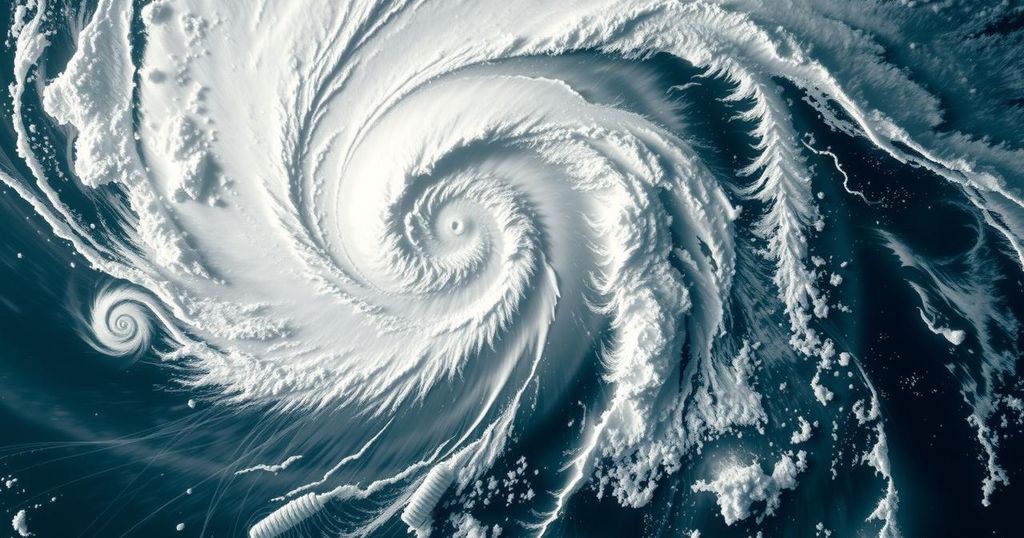Mayotte Faces New Storm Woes as Cyclone Dikeledi Strikes Again

Tropical Cyclone Dikeledi has caused widespread devastation across Madagascar, Mayotte, and Mozambique, leading to fatalities, extensive flooding, and displacement. Mayotte is still recovering from Cyclone Chido, which struck just weeks prior. Local residents express concerns about their safety amidst ongoing storms, while emergency aid efforts are being mobilized in response to the disaster’s impacts.
Tropical Cyclone Dikeledi has wreaked havoc across Madagascar and the surrounding regions, resulting in significant rainfall and flooding during its progression toward the African mainland. Tragically, at least three fatalities have been reported in Madagascar since Dikeledi made landfall on January 11. The cyclone disproportionately affected Mayotte, Comoros, and Mozambique, with Mayotte recently recovering from the devastation caused by Cyclone Chido last month.
Following Dikeledi’s formation in the Southern Indian Ocean, it rapidly intensified before striking northern Madagascar, leading to the displacement of over 15,000 individuals in the region. Moreover, approximately 20,000 residents in Mayotte have been forced to evacuate due to the life-threatening conditions resulting from the storm. Despite a slight reduction in intensity, Dikeledi brought severe winds, flash floods, and landslides to Mayotte on January 12, significantly damaging infrastructure, particularly in villages such as Mbouini.
The local community has expressed deep concerns about the ongoing threats posed by these severe weather events. One resident of Mbouini, Massa, articulated their distress, stating they are “traumatized” by both Cyclone Chido and the latest cyclone, underscoring the fear of potential further storms during the rainy season. Manuel Valls, the French minister for overseas territories, characterized the impact of Dikeledi as “violent,” while Francois-Xavier Bieuville, the prefect of Mayotte, emphasized the territory’s fragility amid ongoing severe winds and rainfall.
The European Civil Protection and Humanitarian Aid Operations (ECHO) report indicated that Cyclone Dikeledi is projected to intensify as it traverses south through the Mozambique Channel, posing further threats of heavy rainfall, strong winds, and storm surges across Madagascar, Mayotte, Comoros, and Mozambique. The human impact of Cyclone Chido was devastating, with at least 36 casualties reported in Mayotte, coupled with over 120 deaths in Mozambique.
Emergency response operations are currently underway in Madagascar, as noted by a United Nations Office for the Coordination of Humanitarian Affairs (OCHA) update, which indicated that emergency supplies and cash assistance are being provided to affected households.
The region surrounding Mayotte has been grappling with severe tropical cyclones, with the latest being Cyclone Dikeledi. Prior to Dikeledi, Cyclone Chido caused major destruction, resulting in numerous fatalities and displacements in Mayotte and Mozambique. The archipelago’s vulnerability is exacerbated by the prevalence of flimsy housing structures and the socioeconomic conditions of its residents. As these storms grow in intensity due to climate conditions, the impact on local populations becomes increasingly critical, necessitating robust emergency management and humanitarian efforts to address immediate needs and long-term recovery efforts.
The recent impacts of Tropical Cyclone Dikeledi illustrate the precariousness of life in Mayotte and surrounding regions following consecutive cyclones. With significant displacement, infrastructure damage, and a fearful populace still reeling from Cyclone Chido, effective emergency response is essential. The situation also highlights broader themes of vulnerability and resilience amid climate-related threats, which require concerted efforts from humanitarian agencies and governments to support recovery and mitigate future risks.
Original Source: news.mongabay.com







